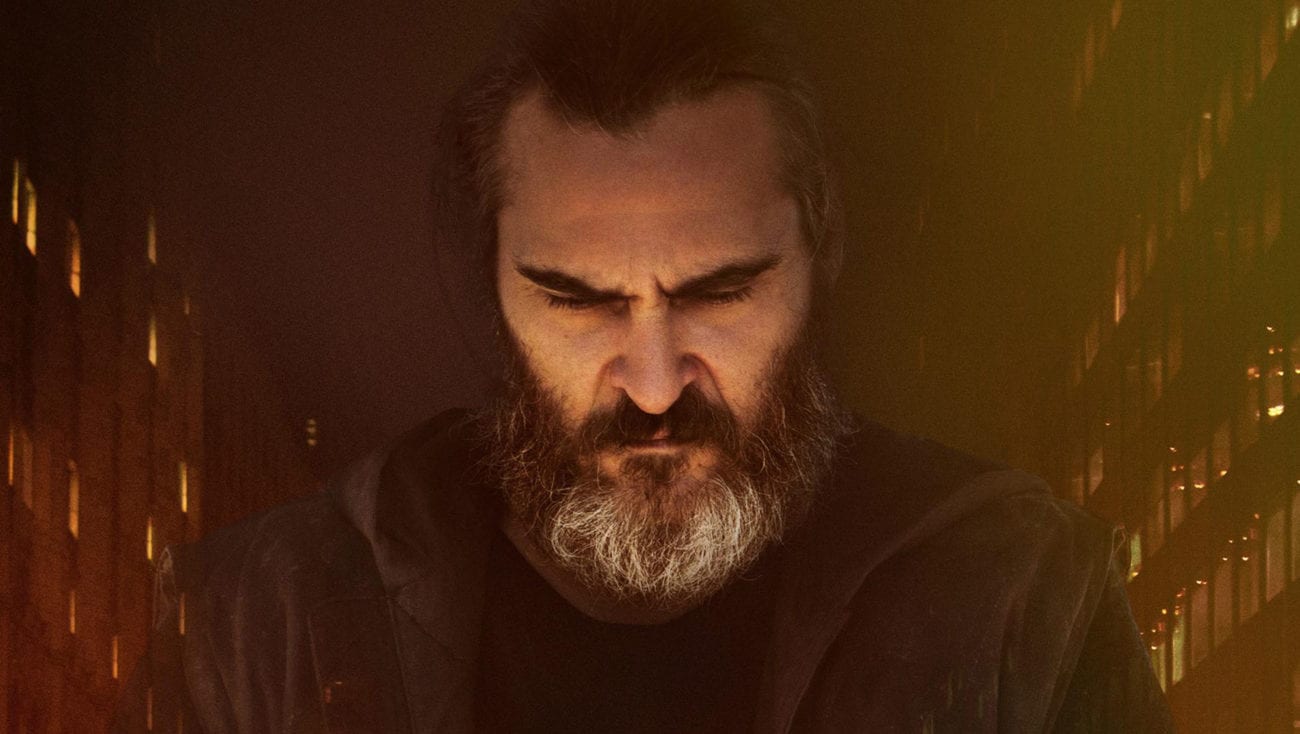
‘You Were Never Really Here’: The fantasy worlds of Jonathan Ames
Lynne Ramsay’s noir drama You Were Never Really Here stars Joaquin Phoenix as a veteran-turned-hitman tasked with rescuing a teenage girl from a sex-trafficking ring. The narrative is based on the novella of the same name written by the multi-talented Jonathan Ames, who has produced over the years a range of creative works from self-effacing confessional essays, to the P.G. Wodehouse homage Wake Up, Sir!, to HBO’s hit comedy series Bored to Death.
We at Film Daily were stoked to take a break from the newsroom to talk to the New Yorker about his writing style, influences from pulp fiction, and the potential for a You Were Never Really Here sequel.
Film Daily: Tell us about You Were Never Really Here. It tackles quite a difficult subject matter – much darker than some of your previous work. Was this a more challenging novella to write?
Jonathan Ames: I wrote the book with the intention of writing something non-comedic, because my whole career – my essays, my novels, my TV shows, and my performances on stage – everything ultimately led to a laugh. I had also become increasingly fascinated by genre novels in that overused phrase “pulp fiction”. You Were Never Really Here was my attempt to write a piece of pulp fiction, and I had certain literary inspirations for the book, primarily the writer Richard Stark, a pseudonym for Donald Westlake, who is best known in the film world for having written the screenplay The Grifters. I wanted to write something like a Richard Stark novel, and also to create an iconic hero character – a bit like a Jack Reacher in the Lee Child world.
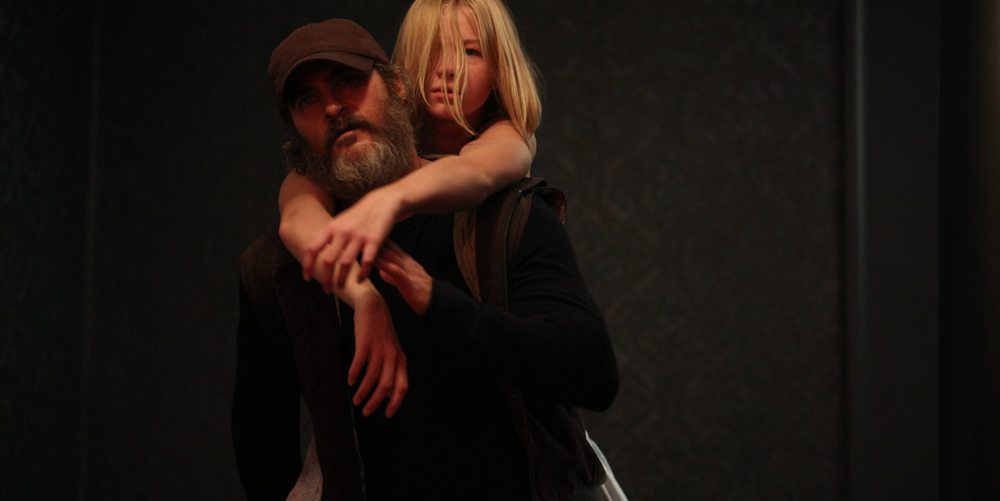
How was that process? Did you find it easier because you had this intention in mind?
As Thomas Mann once said, writing is difficult for writers because we think about it and we agonize over the sentences. But I had been reading so much pulp fiction that it was similar to a musician writing music – I was hearing a certain music in my mind. I began to transcribe this kind of noir pulp style onto the page and I enjoy that kind of writing; it can be very direct.
What was the process for You Were Never Really Here’s conversion into a film?
I initially sent the book to my agent saying I think there’s a movie in this, but he didn’t really respond. Then the book came out in France in 2013 as a drugstore paperback and a French film producer, Rosa Aptad, saw the reviews of the book, read it & loved it, and presented it to Lynne Ramsay. Ramsay wanted to turn it into a film, so she and I began to communicate and eventually contracts were written up and we went from there. For about two years she would send me drafts of the script and I would give her my thoughts, and amazingly during the process she was able to get Joaquin Phoenix on board. The funding then came through from a French film company, Film4, and eventually Amazon Studios helped out, so it came together the way independent films do. The film was shot in August 2016 and although I was working on a TV pilot at the time, I was able to come and be on set for two nights, which was great.
With regards to the book version, I expanded it this summer by about 30 pages, filling in scenes and fleshing them out. The updated version is out in the States this week, while the movie comes out April 6. I’m also writing a sequel.
Could you tell us a bit about the sequel?
The film ends somewhat differently to my book, so I’m writing a sequel that picks up exactly where You Were Never Really Here leaves off. It’s a work in progress, but I have about 85 pages done. It won’t be a long book, but it’ll be longer than You Were Never Really Here. I have this fantasy of being a pulp writer who can pump out books quickly, so maybe I’ll be able to have it done by this June or July and have it come out next year if someone wants to publish it – which I hope someone will.
Your work is often called neo-noir. What is it about the genre that keeps bringing you back?
I became really intrigued by the page-turner. I think I’d spent so much of my life reading great literature or heavy books that I came to love a book that just compelled me to turn the pages. During the time when I was writing and working on my TV show Bored to Death, I think I needed books that I could quickly and enjoyably consume while working so many hours. I’d also had a longstanding fascination with the early pioneers of the genre – Raymond Chandler, Dashiell Hammett, David Goodis. These became the kind of books that I enjoyed reading and when I was a teacher of writing, I always used to tell students: “Write the kind of books you enjoy reading.” So that’s why I did this – it was the same reason I wrote a book that was an homage in many ways to P.G. Wodehouse – because I love reading his books.
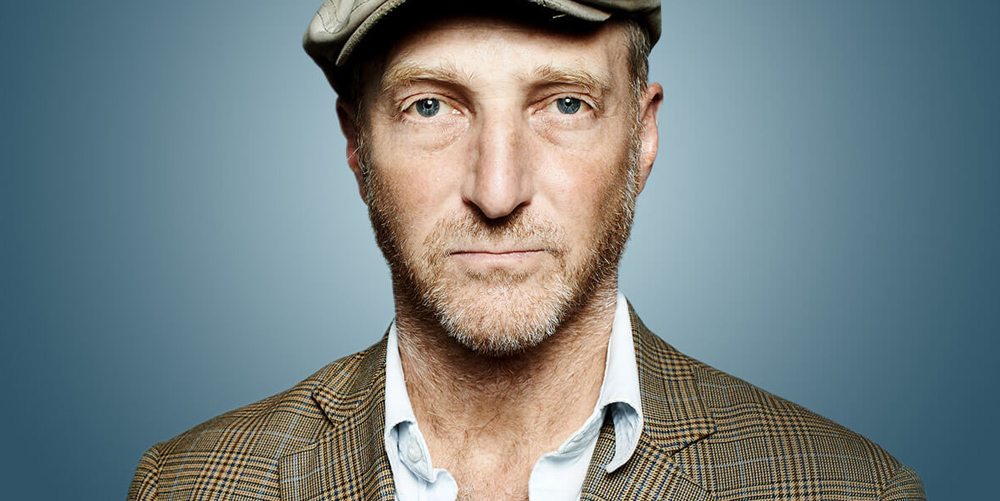
Speaking of which, with regards to your Wodehouse homage novel Wake Up, Sir!, would you ever consider adapting something from the Wodehouse canon for the screen?
I don’t think I would adapt a Wodehouse novel for screen, but I have long considered adapting Wake Up, Sir!. I wrote a script version of it a while ago which I need to revisit. Perhaps that could make for a future on-screen adaptation.
So you think Alan Blair could have a life on the screen?
I think he could, and it might be something I try to direct in the future – I’ve had various actors interested in the role at different times, so I really should revisit it. I would want to say something new with the film and hopefully make something with meaning that people would love.
Let’s discuss Sexual Metamorphosis: An Anthology of Transsexual Memoirs. We think it was before its time in foregrounding transgender stories. Would you ever consider revisiting that subject?
Well, I put that book together about 13 years ago, as I had noticed a number of books with interesting transgender stories and I thought they’d be great as an anthology. There was the biography of Billy Tipton – the jazz musician who was a woman but lived as a man for 50 years – and then another book came out called As Nature Made Him about a boy who had his penis snipped off during a circumcision and his parents were told to raise him as a girl. When he found out in adolescence he’d been born a boy he wanted to live as a male again. I narrowed it down just to the memoirs of transsexuals, and at that time I was teaching at Indiana University and had access to the Kinsey Institute for the Study of Human Sexuality. So I began to put this book together. The funny thing is I did it thinking I might make some money out of it, but it turned out the rights to all the pieces cost me so much, I actually lost money!
I wrote a fair amount about the world of transsexuals in early 90s New York in my novel The Extra Man too, but I don’t necessarily see myself revisiting that topic. Although a therapist also said to me about my anthology that I was ahead of my time, so I guess in that sense it could be updated perhaps.
Your original vocation was writing. What made you decide to go into the film and TV industry?
In New York I’d been performing for years, not quite a comedian but what people might call a monologist in the tradition of Spalding Gray. So I kind of had my foot in the door in the performance world, and that helped me segue into television.
I was also driven by economics. It was almost impossible for me to survive as a novelist; television writing is much more lucrative. I was surviving by teaching and writing, but just barely getting by. So then I wrote Bored to Death and turned that into a TV show, and began to be able to support myself like an adult.
You have a great sense of humor about yourself, which we noticed a lot in Bored to Death, whose protagonist is even named “Jonathan Ames”. Why do you think the public resonated with its characters and story?
With all my books and TV shows, I want to create characters the audience will love or identify with, so they might see themselves in these characters with their vulnerabilities and their frailties. With regards to Bored to Death, first of all it was an amazing cast – Jason Schwartzman, Zach Galifianakis, Ted Danson – it was incredible. In that show I wanted to portray friendship. I noticed in a lot of TV shows the characters were mean to each other, but here I wanted the characters to love each other. It’s the same in my other show Blunt Talk which starred Patrick Stewart, Adrian Scarborough, and Jacki Weaver. I wanted to have an ethos of the characters loving each other and then hopefully the audience will love them too.
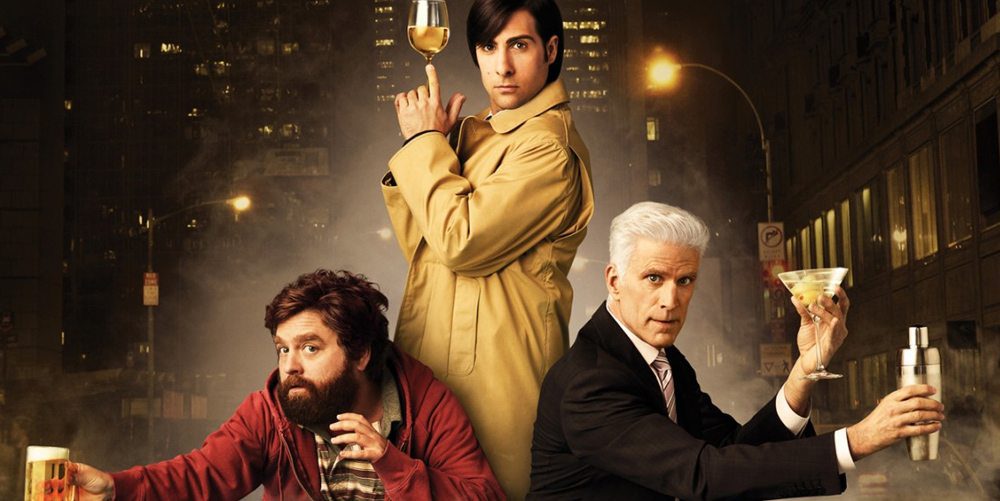
Bored to Death integrated drug use into its plot in a fresh and true-to-life way we hadn’t seen on the small screen before. Can you speak about the series’s unique verisimilitude in the depiction of cannabis use?
Perhaps it was a little bit ahead of its time in the U.S. because now marijuana is so legal, everyone is smoking it. I think that there’s something about marijuana that can make people a little more gentle and a little more dreamy, and maybe that makes for good comedy. I guess in some respects it was a slightly more realistic portrayal of marijuana use – for example, the Jonathan character, he really just enjoyed a one-hitter.
Speaking of Jonathan, what do you think he, George, and Ray would be up to these days?
I sometimes think about it. I don’t know if a movie is ever going to happen, but I sort of had fantasies in my mind that Jonathan moved to Los Angeles and was going deep into his Raymond Chandler routes as a private detective. Ray was still drawing his comics, and I think he had evolved somewhat as a person. George would perhaps have a podcast called the “potcast” – he would basically get stoned and interview people in the world. The film adaptation is looking less likely, but maybe it’s better the characters just move on in our imagination rather than prodding them back out.
With regards to the cast: I love those guys. It might sound like a cliché, but we became a family during those three years of filming, and I’m very close to all of them. It’s the same thing with Blunt Talk – I got very close to Patrick Stewart, Adrian Scarborough, Dolly Wells, the whole team. I’m hoping someday Blunt Talk will be available in England because we have such an English cast.
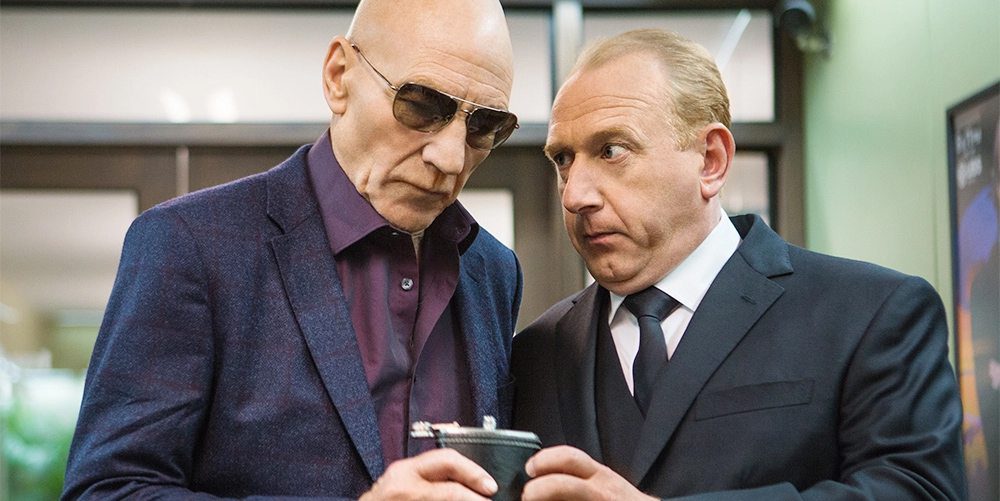
Did you write the part in Blunt Talk specifically for Patrick Stewart?
Yes, Seth MacFarlane wanted to do a comedy starring Patrick Stewart and so I conceived the character Walter Blunt as a cable news host, imagining him in all those scenarios. It was helpful knowing who I was writing the part for, imagining this grand and wonderful actor. It was an honor to write for him and a little scary; he’s spoken the words of all the greats, but he was very generous and kind to me. Adrian Scarborough was just brilliant in the show and his chemistry with Patrick Stewart was magical. Dolly was fantastic too, and Jacki Weaver – the whole cast was amazing.
Do you have a favorite character of your own creation?
I would say what I like more are the relationships between the characters. I like how the actors in the film versions of my work care for each other. The way Phoenix’s character cares for his mother in the film was very much based on my relationship with my great aunt. And the friendships in Bored to Death and Blunt Talk as well as my novels are very kind and loving. It’s the same thing with Wake Up, Sir!, even if it’s with the valet who may or may not be real. So I think my favorite things are the tenderness and the kindness the characters exhibit towards each other.
Heading back to You Were Never Really Here, if Phoenix’s character Joe really were here, what would you say to him?
It sounds a bit dull, but I might just say, “How are you? Are you alright?”
This interview has been edited and condensed for clarity.





